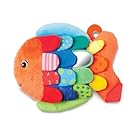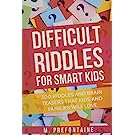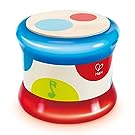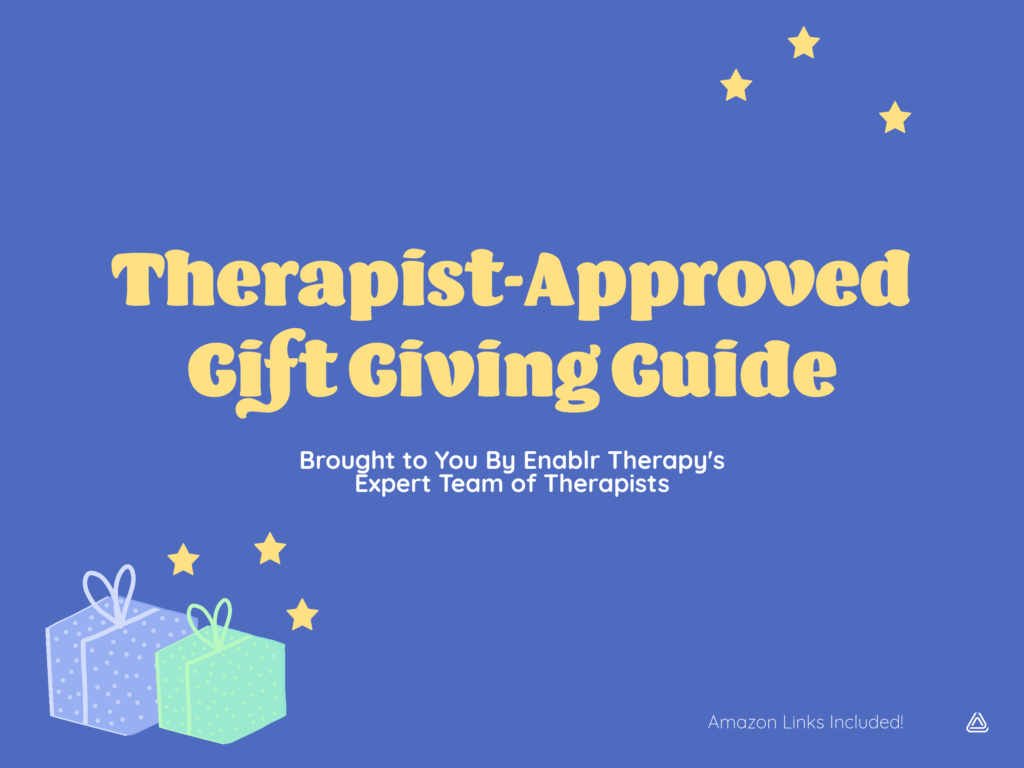Play is a major life activity for children of all ages that facilitates development of fine and gross motor skills, language development, social interaction, emotional regulation, and cognitive skills. Play is learning, not just fun. When choosing gifts for your child(ren) this holiday season, select a variety of toys that build these foundational skills in fun and engaging ways.
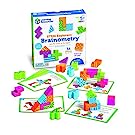
Open-Ended toys remain superior for development especially in the areas of language, social interaction, emotional regulation, and motor skills when compared to online games or electronics. Non-electronic toys tend to offer a larger variety of possible play schemes and social interaction with family and friends. Blocks, building sets, pretend play like dress up clothes and kitchen sets, arts and crafts kits, outdoor sports equipment, and books make great choices for children. Be sure to balance exposure to online and electronic games with more traditional toys and activities.
Here are a few tips on how to facilitate developmentally appropriate play.
1. Provide Both Structured and Unstructured Play.
Structured play with an adult allows the adult to model and teach new skills, builds relational bonds between parent and child, and helps to teach kids to follow direction and take turns. Set aside time to play with your child as research has shown that playtime with parent(s) is important. In addition, unstructured play allows children to develop their own interests, explore and experiment, expand their imagination, and learn how to wait and entertain themselves.
2. Allow Your Child to Lead Play Time.
Child-centered play allows children to be in control and direct what activities they would like to do. As an adult, you give your undivided attention and follow their lead instead of telling them what to do. You should give choices, ask questions, describe what they are doing, reflect back what they say to help build language and thinking skills and be silly and have fun. You can introduce new ways to play with items by modeling but if the child does not seem interested, be sure to move on to something that is engaging for them.
3. Use Play to Create Teachable Moments.
During play time, adults can use stuffed animals, puppets, dolls, or figurines to act out real-life scenarios that can teach social skills and problem solving. Let the character handle a situation inappropriately and then ask the child how they could do it better. Talk about different feelings and how to use calm down and coping strategies.
4. Try Different Types Of Activities.
Providing some variety allows different types of skills to be developed. For example, playing outdoors encourages more gross motor skills while reading a story will develop more language skills. Here is a list of some possible activities:
- Play outside on the playground, with balls, or taking a nature walk.
- Build with blocks, legos, or other materials to develop fine motor and visual spatial skills, and imagination.
- Play card and board games for lessons on turn taking, rule following, and sportsmanship.
- Read books to build language, thinking, and emotional regulation skills and to explore different social situations.
- Make crafts, cook, or bake to work on direction following and fine and visual motor skills just a name a few.
- Listen to music or dance to build creativity, coordination, and mutual enjoyment.
- Pretend play with dolls, figurines, or puppets to explore social scenarios and emotional wellbeing.
As a child grows and develops new language, motor, cognitive, social and emotional skills, their play will also develop and transform. Play will become more complex and allow the child to practice and master skills needed to succeed in life. Playing is learning. To learn more about the developmental states associated with play, check out our Play Milestones blog.
Enablr Therapy has a team of expert speech pathologists, occupational and physical therapists, and social workers. These experts have compiled a list of some favorite books, games, and toys for different childhood age groups to help parents, grandparents, and friends with gift giving ideas. Many of the suggested items are available for less than $20 for budget conscious spending. Enablr Therapy wishes you and your family a happy holiday!
Links To Amazon Gift List For:
